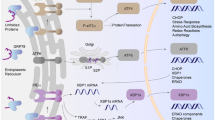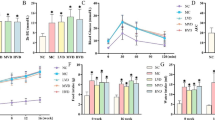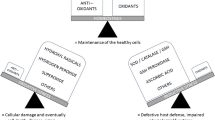Summary
The apoptosis and the expression of tumor suppressor gene p53 in hypercholesterolemia (HC)-induced renal injury were investigated in rats. A high cholesterol diet (HCD)-induced HC rat model was made and serum lipid, urinary protein excretion (UPE) and N-aceto-β-D-glucosidase (NAG) were measured. The levels of malondialdehyde (MDA), as an index of lipid peroxidation, in renal cortex and serum were compared between the two diet groups. Apoptosis and p53 expression were determined by TUNEL and immunohistochemistry, respectively. In the HCD-induced HC group, serum total cholesterol (TC), low density lipoprotein-cholesterol (LDL-C) as well as triglyceride (TG) were significantly increased, while the level of high density lipoprotein-cholesterol (HDL-C) decreased. Meanwhile, increased excretions of UPE and NAG in urine were observed, which were accompanied with a decrease in urinary creatinine clearance (Ccr) and indicated both glomerular and tubular damages. In addition, apoptotic cell death coexisted in the kidney, as revealed by increased TUNEL positive cells. Finally, an increase in p53 expression was observed in tubuli, but not in glomeruli. Both TUNEL positive cells and p53 expression were found to be correlated to the level of renal cortical MDA (r=0.817,P<0.01 andr=0.547,P<0.01, respectively). The major manifestation of HCD-induced renal injury is apoptosis. The lipid peroxidation is a critical event to induce DNa damage and p53 is involved in the pathogenesis of lipid-induced renal injury.
Similar content being viewed by others
References
Nihei S, Yamashita K, Tasaki Het al. Oxidized lowdensity lipoprotein-induced apoptosis is attenuated by insulin-activated phosphatidylinositol 3-kinase/Akt through p38 mitogen-activated protein kinase. Clin Exp Pharmacol Physiol, 2005, 2:224
Tashiro K, Makita Y, Shike Tet al. Detection of cell death of cultured mouse mesangial cells induced by oxidized low-density lipoprotein. Nephron, 1999, 82:51
Scheuer H, Gwinner W, Hohbach Jet al. Oxidant stress in hyperlipidemia-induced renal damage. Am J Physiol Renal physiol, 2000, 278:F63h
Bennett M R. Mechanisms of p53-induced apoptosis. Biochem Pharmacol, 1999, 58:1089
von der Thusen J H, van Vlijmen B J, Hoeben R Cet al. Induction of atherosclerotic plaque rupture in apolipoprotein E mice after adenovirus-mediated transfer of p53. Circulation, 2002, 105:2064
Ohkawa H, Ohishi N, Yagi K. Assay for lipid peroxides in animal tissues by thiobarbituric acid reaction. Anal Biochem, 1979, 95:351
Gold R, Schmied M, Giegerich Get al. Differentiation between cellular apoptosis and necrosis by the combined use of in situ tailing and nick translation techniques. Lab Invest, 1994, 71:219
Akishima Y, Akasaka Y, Ishikawa Yet al. Role of macrophage and smooth muscle cell apoptosis in association with oxidized low-density lipoprotein in the atherosclerotic development. Mod Pathol, 2005, 18:365
Duffield J S, Ware C F, Ryffel Bet al. Suppression by apoptotic cells defines tumor necrosis factor-mediated induction of glomerular mesangial cell apoptosis by activated macrophages. Am J Pathol, 2001, 159:1397
Ishiyama A, Atarashi K, Minami Met al. Role of free radicals in the pathogenesis of lipid-induced glomerulosclerosis in rats. Kidney Int, 1999, 55:1348
Author information
Authors and Affiliations
Additional information
YAO Ying, female, born in 1967, M.D., Ph.D.
This project was supported by the Natural Science Foundation of Hubei Province (2004ABA225).
Rights and permissions
About this article
Cite this article
Ying, Y., Xingkui, T., Xiaocheng, L. et al. The p53-mediated apoptosis in hypercholesterolemia-induced renal injury of rats. J. Huazhong Univ. Sci. Technol. [Med. Sci.] 25, 408–411 (2005). https://doi.org/10.1007/BF02828209
Received:
Issue Date:
DOI: https://doi.org/10.1007/BF02828209




